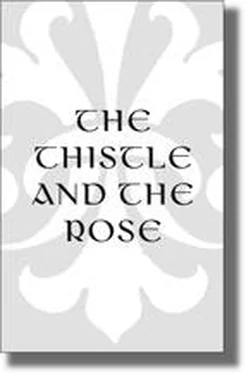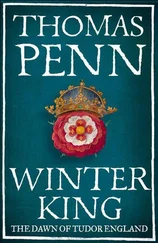Jean Plaidy - To Hold the Crown - The Story of King Henry VII and Elizabeth of York
Здесь есть возможность читать онлайн «Jean Plaidy - To Hold the Crown - The Story of King Henry VII and Elizabeth of York» весь текст электронной книги совершенно бесплатно (целиком полную версию без сокращений). В некоторых случаях можно слушать аудио, скачать через торрент в формате fb2 и присутствует краткое содержание. Жанр: Старинная литература, на русском языке. Описание произведения, (предисловие) а так же отзывы посетителей доступны на портале библиотеки ЛибКат.
- Название:To Hold the Crown: The Story of King Henry VII and Elizabeth of York
- Автор:
- Жанр:
- Год:неизвестен
- ISBN:нет данных
- Рейтинг книги:5 / 5. Голосов: 1
-
Избранное:Добавить в избранное
- Отзывы:
-
Ваша оценка:
- 100
- 1
- 2
- 3
- 4
- 5
To Hold the Crown: The Story of King Henry VII and Elizabeth of York: краткое содержание, описание и аннотация
Предлагаем к чтению аннотацию, описание, краткое содержание или предисловие (зависит от того, что написал сам автор книги «To Hold the Crown: The Story of King Henry VII and Elizabeth of York»). Если вы не нашли необходимую информацию о книге — напишите в комментариях, мы постараемся отыскать её.
To Hold the Crown: The Story of King Henry VII and Elizabeth of York — читать онлайн бесплатно полную книгу (весь текст) целиком
Ниже представлен текст книги, разбитый по страницам. Система сохранения места последней прочитанной страницы, позволяет с удобством читать онлайн бесплатно книгу «To Hold the Crown: The Story of King Henry VII and Elizabeth of York», без необходимости каждый раз заново искать на чём Вы остановились. Поставьте закладку, и сможете в любой момент перейти на страницу, на которой закончили чтение.
Интервал:
Закладка:
He was cold with fear and rage.
He sent for his guards.
“Arrest these men,” he said.

So now he knew the extent of the conspiracy. He had been wise to intercept the messengers.
He thought constantly of Sir Robert Clifford. He knew the man well, remembering him from the days in France. He was not a man whom he considered would be distinguished for his bravery, and it occurred to the King that Robert Clifford might be very useful to him. The men whose names had been revealed were not of any great importance perhaps. They were not the leaders of the conspiracy and Henry’s natural suspicions led him to believe that there might be men close to him who were working against him. They were the ones he must try to catch.
He made a decision. Could he use Robert Clifford to work for him as an informer, a counter spy? It seemed possible. He immediately sent one of his spies to Flanders in the guise of a merchant with the instructions that he was to seek out Robert Clifford, sound him, offer him a pardon, offer him money, if he would work for Henry instead of for this Pretender whose claims he must know were as spurious as those of the scullion Lambert Simnel.
Henry eagerly waited for the response. It came quickly. Robert Clifford was ready to work for Henry Tudor.
Henry was pleased. Robert Clifford should be given a free pardon—he had the King’s word for that. When it should be ripe for him to return to England he should have a grant of five hundred pounds; and there should also be a free pardon for his servant Richard Waltier who would also be expected to serve the King in this matter of revealing those who worked against him.
This was a wise move. Henry now began to realize how deeply the dissatisfaction had gone in England. He was amazed at those who were ready to listen to this preposterous claim of young Perkin and moreover dally with the possibility of betraying their crowned King.
Henry Duke of York
 n the nurseries at Eltham Palace the royal children played their games and grappled with their lessons unaware of the fact that their lives could drastically change within a few days if their father’s enemies were successful.
n the nurseries at Eltham Palace the royal children played their games and grappled with their lessons unaware of the fact that their lives could drastically change within a few days if their father’s enemies were successful.
In spite of the fact that he was the youngest and only three years old, Henry was already making his presence felt. Arthur, five years his senior, was a quiet and studious boy, rarely asserting himself and leaving his sister Margaret and young Henry to fight together for supremacy. Five-year-old Margaret was showing signs of a forceful personality, which was matched by that of three-year-old Henry who would send his bronze horse on its squeaky wheels shooting across the nursery in pursuit of any who offended him. He loved that horse for on it sat a knight with a lance and a shield and Henry had always seen himself as that knight, fearless, ready to attack his enemies, and at the same time it offered a certain comfort in the dark. Margaret had complained many times to Anne Oxenbrigge, whose task was to watch over Henry, that her brother had grazed her legs with his silly old horse.
Anne would scold Henry in a mild way, which was no real scolding. Henry knew he only had to bury his face in her skirts and look woeful and she would pick him up and cuddle him. He liked cuddling Anne; she was warm and soft with enormous bosoms from which he had sucked his milk when a baby. She had been chosen because she was young and healthy, large of hip and bosom with a red and white complexion which showed good health. Henry knew of course that she was only a nurse and that his mother was a queen, but a lady so noble that she could not be concerned with children in nurseries. But children in nurseries grew up and when they did they became important as his mother and father were.
He must wait for that day. In the meantime he had to rule the nursery. It would not have been difficult but for his rival Margaret who could scream as loud as he could, kick and cajole as effectively. He did not have to worry about Arthur. Although he was big and old he never listened to their quarrels, and never took part in any; he was always meek and anxious to do his lessons.
Anne said: “Your brother Arthur is a good boy. Now why don’t you try to be more like the Prince of Wales?”
“ I should be Prince of Wales,” said Henry.
“Now, now, that’s silly. Arthur is older than you. It is his right.”
“It’s my right really . . . .”
“The pride of him!” said Anne, kissing him. “Now you try to be a good boy and don’t send that horse of yours crashing into Margaret. You hurt her badly.”
“I’m glad.”
“Now that is really wicked.”
“I am wicked. I want to be wicked. I am going to hurt Margaret with my horse. My knight doesn’t like her. He doesn’t like Arthur. He thinks I ought to be Prince of Wales.”
“Tut, tut!” said Anne; he heard her say afterward to one of the maids: “Our young Henry has a fine conceit of himself. I fancy he is jealous of his brother. I’m always telling him he ought to be more like him. I thank the Virgin that he is not.”
Henry was all ears. The perfidy of women! Wasn’t Anne always telling him that he should be good and quiet like Arthur, studying his lessons—and now she was thanking the Virgin that he was not! This was interesting.
“Delicate,” whispered Anne. “Takes after his mother.”
“Don’t suppose he’ll make old bones.”
“It wouldn’t surprise me at all. It’s a good thing we have young Henry.”
“There’s a sturdy little fellow for you. They say he takes after his grandfather King Edward. I never saw him but I hear he was big and tall and more handsome than anyone ever before.”
“I reckon that’s about right and young Henry will be such another. It’s a pity he wasn’t born first. . . .What a king he would have made!”
“Well . . . who knows . . . ?”
“Hush! We shouldn’t talk like this. The Queen would think we were illwishing her eldest.”
“God forbid. He’s a dear boy.”
“Easier to manage than young Henry I can tell you.”
“Ah well, he’s a boy to be proud of . . . though a handful.”
The “handful” went off brooding on what he had heard. A resentment had started to grow in his heart. It was rather unkind of God not to have made him the eldest—more than unkind, foolish, for it was clear that he would have made a much better king than Arthur.
He was growing fast and he was a big child. He was secretly delighted to realize that he was catching up on Arthur. Arthur was a little thin and weedy; Henry was sturdy rather than plump; he had a cherubic face with a pink and white complexion, whereas Arthur’s face was thinnish and rather pale; Henry’s reddish hair was thick and plentiful, Arthur’s was inclined to be less vital. Margaret was very like Henry. Vociferous and demanding, there was bustle surrounding her always and she was constantly in some argument with the nurses because she wanted to do something which was forbidden.
Henry felt the nursery would have been a happier place without Margaret—without Arthur too for that matter. He would have liked a nursery where he was the eldest and perhaps one or two brothers and sisters who looked up to him as though he were already a king.
He liked to leave the Palace, which he had done on one or two occasions when he had been to see his parents at Westminster. He had ridden on his palfry—led by a squire—and the people had liked him. They had cheered him wildly—him more than the others he was sure—and he had smiled at them and waved and he fancied his father had been rather pleased with him. He thought it was a shame that they had to come back to Eltham; it was a pleasant palace but away from everything that was especially exciting. Although it was only eight miles from London it was shut away. He felt when he was crossing the drawbridge over the very deep moat that he was leaving the exciting world behind. The walls were so high, the archway so lofty, he felt shut in by all those gray stones and he longed to be older that he might go to Court and hear the people cheer him.
Читать дальшеИнтервал:
Закладка:
Похожие книги на «To Hold the Crown: The Story of King Henry VII and Elizabeth of York»
Представляем Вашему вниманию похожие книги на «To Hold the Crown: The Story of King Henry VII and Elizabeth of York» списком для выбора. Мы отобрали схожую по названию и смыслу литературу в надежде предоставить читателям больше вариантов отыскать новые, интересные, ещё непрочитанные произведения.
Обсуждение, отзывы о книге «To Hold the Crown: The Story of King Henry VII and Elizabeth of York» и просто собственные мнения читателей. Оставьте ваши комментарии, напишите, что Вы думаете о произведении, его смысле или главных героях. Укажите что конкретно понравилось, а что нет, и почему Вы так считаете.












